For most challenges businesses face, there's usually more than one solution to explore. Rather than getting bogged down in analysis paralysis, leaders typically rely on tried and true strategy tips and advice to guide them to the next step in the right direction.
Recently, finalists in the 2022 National CIO of the Year ORBIE Awards each shared a piece of advice they had collected over their careers. We’ve rounded up the eight best quotes on strategy below. Read on, or download the complete quote book for advice on leadership, soft skills, career development, strategy, and more.
Key strategy lessons from the experts
From the moral authority of clients to the importance of measurements, consider these thoughts on what makes strategies succeed.
Play the long game
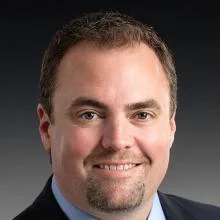
Mark Brooks, EVP & CIO, Centene Corporation: On April 7, the world lost Michael F. Neidorff, long-term Chairman and Chief Executive Officer for Centene.
A true visionary, Michael was committed to making every community he could better, either by providing accessible healthcare coverage to vulnerable populations, donating to the arts, or ensuring employment opportunities existed in communities that might otherwise be overlooked.
A huge part of Michael’s legacy that often isn’t shared is how much he truly cared for Centene employees. To me personally, he was a mentor who took a chance on a farm boy from California, and some of the greatest advice he gave me was that it’s more important to “play the long game” than to make short-term decisions. In other words, it will pay out in dividends to build foundational partnerships with other leaders to encourage collaborative decision-making.
This gives all of us a wide-angle view of the organization’s strategy and a better chance that the decision at hand will lead to long-term success. At the same time, Michael taught me that in a world of fast-moving change – where technology organizations have to prepare not for what’s next but for what’s only beginning to emerge – leaders must be able to quickly and confidently make the right decisions that will best benefit the organization’s long-term vision. The insight Michael shared with me has not only helped form my career but shines a light on the importance of confident leadership. That light, for me, will never be dimmed.
The only moral authority is a client
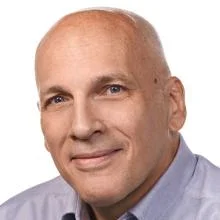
Bernie Gracy, SVP & CDO, Agero: In the early 2000s, a former divisional president (Brian Baxendale) of another B2B2C company like Agero drilled into me and my colleagues his passion for clients and their customers: “The ONLY moral authority is a client. We create shareholder value when we help our clients help their customers.”
That simple phrase has been the guidepost for my career. So many in technology are insulated (or disintermediated) from clients, customers, and users by sales, account management, or product management. I have grabbed every opportunity to listen and learn from, and then create and deliver, value for clients of all sizes, whether internal or external.
I have cascaded this philosophy in all of my organizations as I have progressed in my career because it drives the following:
- Client and customer centrism – from ideation through 7x24x365 support.
- A moral sense of purpose – a culture of service-oriented leadership to your internal and external clients.
- Talent/career development – mastering technical competencies is not enough. Client, partner, prospect, and customer listening and communication skills, and the ability to “solution” to meet needs is critical to career progression.
- Value creation – the understanding of how value is created and realized for clients and shareholders. Technical professionals must understand the fundamentals of economics in their designs as well as meet the functional and emotional needs of our clients and their customers. Brian’s advice literally changed the arc of my career. And that same advice has been cascaded to hundreds of others in my charge.
Have a plan

Dr. Edmond Mesrobian, CIO & CTO, Nordstrom, Inc.: The most memorable piece of advice I was given is “Have a plan, or you will be part of someone else’s plan.” At its core, it fosters an empowerment mindset to be proactive, to lead from the front, and to bring people along the journey. The alternative mindset is to be passive, to wait to be told, and to not be curious. I have been fortunate to internalize this mindset to help several companies through their transformations across different industries and continents!
Measure twice, cut once

Rachel Lockett, CIO, Pohlad Companies: I had worked for Matt for a couple of years when I began to recognize a pattern in our interactions. Knowing he loved PowerPoint, I would bring a brief slide deck each time I needed to propose an initiative or major purchase. I would keep the presentation concise while including all the pertinent information I thought he might need to make a decision.
But every time, Matt would ask some deeper follow-up questions for which I did not have a ready answer. He would send me back to do more research and tell me that we would discuss it the following week once I had gathered the additional information.
When the following week came along, I would be prepared to review the proposal, including the new information he had requested, and I would be even more certain of the importance of moving forward with my proposal.
I would sit down in his office, ready to launch into my updated presentation. Invariably, before I could finish the first sentence, Matt would raise his hand and say “That’s fine. I approve. Go ahead and get it done. Keep me posted on the progress.”
I would sit back, feeling both deflated and jubilant at the same time. As I began to recognize the pattern, I eventually asked Matt about it. “Why do you send me back to do all this additional research, and then never even listen to it once I’ve done it?” His answer was short and impactful: “Measure twice. Cut once.”
Business and tech is a team sport
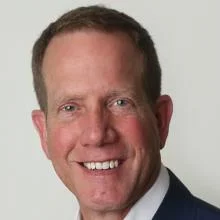
John Pelant, EVP CTO, CWT: Business and technology is a team sport. I truly believe the strength of the organization and the ability to adapt and move forward at pace is a result of the collective organization coming together for a common purpose. Working together with each other and for each other makes the difference between an organization with goals and an organization that reaches its goals.
People, process, then technology
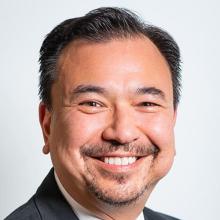
Kim Hales, SVP, IT, NRG Energy: I remember hearing early in my career that efficiency and effectiveness result from “people, process, then technology – in that order.”
I have internalized this advice and use it all the time, from my dedication to the development of the people on our team, to ensure that the team focuses on our internal and external customers. It’s people that make our organization work.
I also learned that when people try to push technology as the answer to a problem without working it through people and process first, it will very likely fail. Without people driving the solution, there’s little hope for them to understand and shape the processes that should be driving the design and implementation of the technological solution.
I have seen systems fail that should not have because they didn’t employ strong organizational change management. I’ve seen mediocre technology success because it was rolled out in a people-first manner where they were invested in the success of the new processes and technology.
Putting people as the top priority to any challenge has always led to success for me and my team. If in doubt about a problem, decision, or direction, think about how to make people successful first and you cannot go wrong.
What's measured will improve
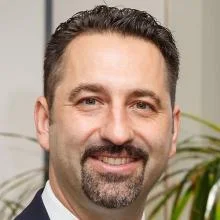
Ted Ross, CIO & General Manager, City of Los Angeles: Debra Grant, my supervisor at the Los Angeles Airport Department, once told me, quoting Peter Drucker: “What’s measured will improve.”
At an early stage of my government career, this advice was very memorable to me both as a manager and when making career choices.
First, for every new job, I work hard to synthesize what it is we actually do. It is amazing how many organizations have a rough “feeling” about the services they perform and the products they deliver. In fact, I have found this to be a very useful question during a job interview to get a better gauge of the company I am seeking to work for. Their response will inform you about the environment you may end up working in.
Second, the identification and use of Key Performance Indicators (KPIs) transforms business or government. If the KPIs have a real relationship with desired performance, then those measurements will improve organizational behavior and investments. This becomes essential in fighting for budget, competing for projects, and holding ambitious colleagues at bay.
Third, measurements allow me to personally demonstrate results during my career. KPIs that were established and improved during my tenure as a CIO, allow me to clearly demonstrate my leadership for future career opportunities. In other words, measurements not only improve the organization I am working for, but they improve my career opportunities and the doors that are open to me.
Thank you again, Debra. I sincerely appreciate your insight and mentorship.
Create a vision and clear the way
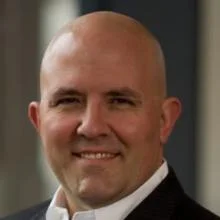
Aaron Gwinner, SVP & CIO, Reynolds American: Leadership is about creating a vision of where you want to go that your team can own and rally around. Your job is not to tell them how to get there – it’s to ensure nothing gets in their way!
[ Leading CIOs are reimagining the nature of work while strengthening organizational resilience. Learn 4 key digital transformation leadership priorities in a new report from Harvard Business Review Analytic Services. ]





